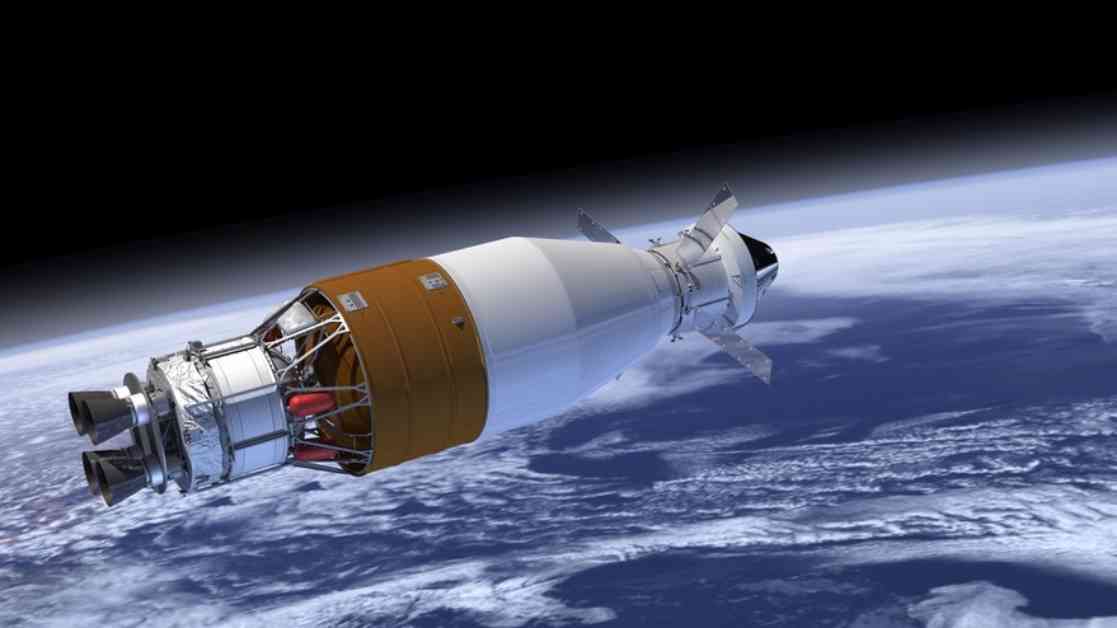Boeing Faces Quality Control Issues with NASA’s Space Launch System
In a scathing report released by NASA’s Office of Inspector General (OIG), Boeing’s work on the next version of the Space Launch System (SLS) has come under intense scrutiny for serious lapses in quality control. The report, which was made public on August 8, highlights significant issues with Boeing’s work on the Block 1B version of SLS being conducted at the Michoud Assembly Facility in New Orleans.
According to the OIG report, the lack of an acceptable quality management system and a trained workforce were key factors contributing to the quality control problems plaguing Boeing’s work on the SLS. The report pointed out that NASA had enlisted the Defense Contract Management Agency (DCMA) to monitor Boeing’s activities at Michoud, but even with external oversight, Boeing’s process for addressing contractual noncompliance was deemed ineffective.
The OIG report revealed that from September 2021 to September 2023, there were a total of 71 corrective action requests (CARs) issued by DCMA concerning Boeing’s SLS work at Michoud. Of these, 24 were classified as Level 2 CARs, indicating more serious issues that could not be immediately rectified or involved critical safety hardware. The sheer number of CARs raised concerns, with the DCMA noting that it was unusually high for a spaceflight program at this stage of development.
One particular area of concern highlighted in the report was the inspections of work referred to as “stamp warranty,” which led NASA to recommend the issuance of a Level 3 CAR, reserved for severe nonconformities. However, instead of issuing the Level 3 CAR, NASA opted for alternative corrective action methods, including additional reviews.
The report attributed the high number of quality problems to a lack of a trained workforce at the Michoud Assembly Facility. The geographical location of the facility in New Orleans, Louisiana, and lower employee compensation relative to other aerospace competitors were cited as reasons for the difficulty in attracting and retaining a skilled contractor workforce with aerospace manufacturing experience.
During a site visit in April 2023, OIG staff observed a liquid oxygen tank section intended for use on the SLS core stage for Artemis 3 that had been segregated and pending disposition due to welds that did not meet specifications. NASA officials attributed the welding issues to Boeing’s inexperienced technicians and inadequate work order planning and supervision.
The report also called out Boeing’s management of the Exploration Upper Stage (EUS), a key component of the Block 1B SLS that will replace the Interim Cryogenic Upper Stage used on the original Block 1 SLS. The EUS accounts for more than half of the $5.7 billion development cost for the Block 1B, which has seen a $700 million increase in costs since NASA made a baseline commitment last December.
While NASA anticipates a decrease in spending on EUS as Boeing reallocates workers off the project, the report projected that Block 1B annual costs would remain at 2023 levels through at least 2026 before tapering off in subsequent years. The report warned that NASA’s budget projections did not include the additional funding required for EUS work through 2027, posing risks of delays to the Artemis 4 launch scheduled for late 2028.
Boeing’s use of an earned value management system (EVMS) was also called into question in the report. The EVMS, a software tool that measures progress based on technical, cost, and other data, has been disapproved for use by the Defense Department since 2020 due to several deficiencies. NASA contracting officials noted that Boeing’s EVMS deficiencies prevented the company from producing a realistic baseline delivery date for the EUS.
The OIG report concluded with concerns that Boeing’s quality management and workforce challenges could potentially impact the safety of the SLS and Orion spacecraft, including its crew and cargo. The report made four recommendations, including the implementation of an improved quality management program, cost overrun analysis, and coordination with DCMA on bringing the EVMS into compliance, all of which NASA accepted in its response.
However, NASA rejected a recommendation for financial penalties to be imposed on Boeing for noncompliance with quality controls, citing concerns about penalties outside the bounds of the contract. OIG responded by emphasizing the importance of holding Boeing accountable for failing to meet required quality control standards, indicating that further discussions with the Agency were needed to resolve the issue.
In light of the findings outlined in the OIG report, it is evident that Boeing’s work on the SLS at the Michoud Assembly Facility has been marred by significant quality control issues. With NASA’s crucial Artemis missions relying on the successful development and deployment of the SLS, addressing these challenges is imperative to ensure the safety and success of future space exploration endeavors.






















